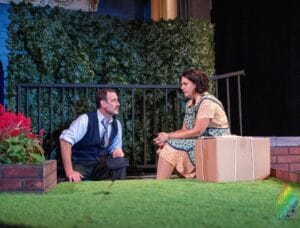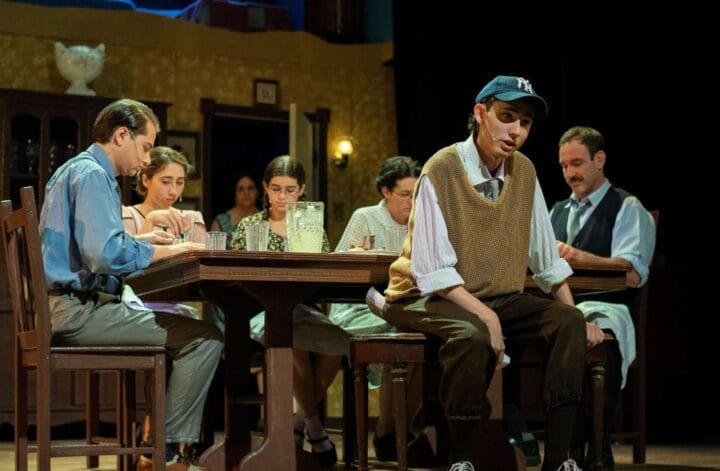Going three for three so far in their season, Lake Worth Playhouse is back with another triumph of a production for its South Florida viewers in “Brighton Beach Memoirs.” A step away from the grandness of its last two musicals in “School of Rock” and “The Prom,” the current play is the first play of three in this semi-autobiographical tale of playwright Neil Simon’s life.
The play, set in 1930s Brooklyn at the dawn of World War II, focuses on themes of poverty, puberty, family, and Judaism, and the homegrown cast of Lake Worth provide the urgency for a tale from a century ago.
The scene and setting – my god. The production team and crew of Lake Worth Playhouse have outdone themselves with this set, depicting the Jerome household, engulfing the stage and reaching up to the rafters. The dining room, the brick porch, the second story and its bedrooms, all so well articulated and brought to life.

The set designers (Daniel Eiola & Nelson Stone), the lighting designer (Ardean Landhuis), the scenic painters (Ma Knoke & Olga Kark), and the carpenters (Knoke & all) have built something that is incredibly powerful to a viewer, grand in scale, meticulous in detail. Perhaps my favorite element of the design is how the stage becomes dissected into four quadrants, with activities happening in each, while the viewer follows the conversation from just one or two.
The play itself is interesting enough, albeit a bit slow. The energy of a musical can be undeniable in song, but this play, which starts at a slow pace, develops quite a nice slow burn throughout its duration. High schooler Eugene Jerome (Graysen Quinn Master) is our narrator and our stand-in for playwright Simon, and Master’s performance is quite a phenomenon.
Eugene is situated in smaller home with his brother (Kole Rosin), father (Russell Kerr), mother (Trish Weaver-Rhodes), aunt (Megan Pollak), and cousins (Maia Martinez & Reese Lores), all of whom rely on the working efforts of his father Jack’s efforts. His brother Stanley also contributes to the household, but continually has financial struggles throughout the play, demonstrating that the Jerome family is one bad decision away from total poverty.


